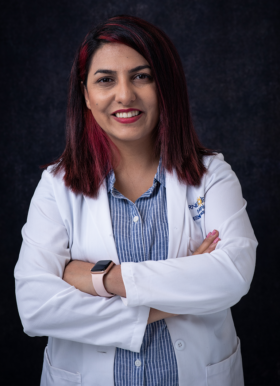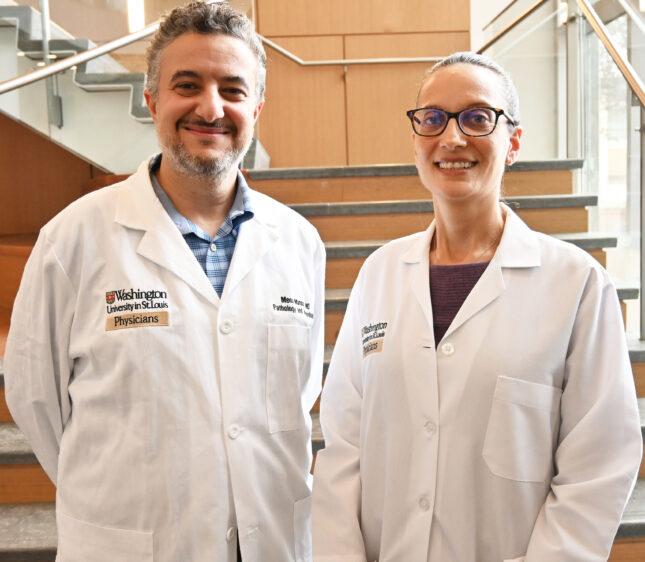
The head and neck pathology fellowship may include general surgical pathology (up to six months) or consist exclusively of head and neck pathology, depending on the interest of the fellow.
Major strengths of the fellowship include a diverse and abundant case mix, graduated responsibility for clinical cases (particularly in the area of frozen section diagnosis) and opportunities for clinical research. It is a highly immersive fellowship, with a large volume of specimens ranging from the most complex to the most common to many of the rarest. Fellows learn by seeing and doing and by handling, diagnosing and pre-dictating most of their cases.
The head and neck pathology fellowship was approved by the Accreditation Council for Graduate Medical Education (ACGME) and began July 1, 2015.
Head and neck
The fellow will work up and sign out all head and neck consults, both directed and inside/outside with the head and neck attendings. The fellow has the option to review cases with the attending or not. If the cases are reviewed alone, the fellow will give all the slides and a dictated final report to the attending on inside/outside consult coverage, who will review and sign out the case.
Fellow duties include:
1. Sign-out every third large in-house head and neck tumor resection case with the head and neck service attending. Handle all head and neck consult cases.
2. Review resident’s head and neck cases prior to signout and sit for sign out of these cases, when available.
3. Review the pathological findings of cases with Otolaryngology and Oncology clinicians who come to the department to look at their cases.
4. Participate in frozen sections at South Campus when the regular South frozen section staff need assistance with multi-part ENT cases. The fellow needs to be available 7:45 am up to 5:30 pm on weekdays and will be paged to the frozen section area for all such cases.
5. Develop a strong knowledge of head and neck surgical and pathologic anatomy.
6. Educate junior residents and rotating medical students about gross prosection, how to provide accurate gross descriptions of routine and complex specimens and about safety practices in the pathology laboratory.
7. Attend and present cases at head and neck tumor board (Wednesday at 12:00 PM) and at the endocrine multidisciplinary conference (Thursday at 4:30 PM, two times per month).
8. Attend the monthly head and neck fellow’s conference (last Monday of every month immediately following sign-out).
Rotations may also include:
Frozen section
The frozen section fellow has primary responsibility for organizing the workflow in the frozen section room, providing instruction and leadership to the second-year resident and medical students rotating in the frozen section room and carrying the frozen section pager after hours Monday through Saturday.
Elective
Dedicated, clinical service work free time is provided specifically for the fellows to involve themselves in any (or all) of several areas, depending on their career interests, including scholarly work on a research project, review article, or case report; work on a QA/QI/PS project or clinical skills improvement in a subspecialty area of interest (for example: by case or study set review in head and neck, dermpath, neuropath etc).
In addition, the fellow will be involved in reviewing CAP training in PS/QI modules. Guidance will be from specific attendings for chosen areas of activity with the general plan and execution monitored by the fellowship director.
Cytology
There is a one-week cytology rotation focused on fine-needle aspiration biopsies from the head and neck. Fellows who have already done or plan to do a cytopathology fellowship may opt out of this rotation.
Training for the fellowship occurs in state-of-the-art facilities at Washington University School of Medicine/Barnes-Jewish Hospital/St. Louis Children’s Hospital. The Head and Neck Pathology section is located in the 680,000-square-foot BJC Institute of Health (BJCIH) at Washington University School of Medicine, which is an 11-story research building housing laboratories and support facilities and is Washington University’s largest building.
Fellows must be board-certified or board-eligible in anatomic pathology.
Applicants can apply for all open fellowship positions at fellowships.path.wustl.edu.
Applicants must complete the online application and provide their CV, personal statement, photograph, USMLE scores (step 3 optional), and ECFMG certificate if applicable. The application portal will collect contact information for three individuals who will be asked to write letters of recommendation.
Letters of Recommendation will be solicited via our application portal and should be addressed to:
Rebecca Chernock, MD
Program Director, Head and Neck Pathology Fellowship
Washington University School of Medicine
660 South Euclid Avenue, Campus Box 8118
St. Louis, MO 63110
rchernock@wustl.edu
For general questions, please contact the fellowship program coordinator Lana Torry at lanaktorry@wustl.edu.
Faculty
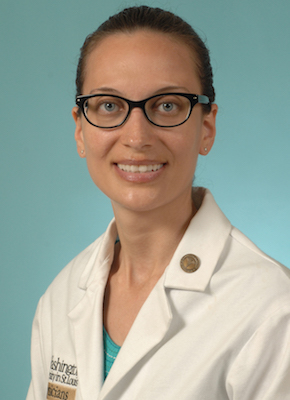
Rebecca Chernock, MD
Professor, Pathology & Immunology
Section Head, Head and Neck Pathology
Director, Selective (Head & Neck) Pathology Fellowship
- Phone: 314-362-0101
- Email: rchernock@wustl.edu
Division: Anatomic & Molecular Pathology
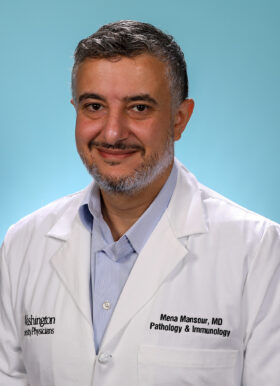
Mena Mansour, MD
Associate Professor, Pathology & Immunology
Section Head, Intraoperative Consultation
- Phone: 314-273-2744
- Email: mmansour@wustl.edu
Division: Anatomic & Molecular Pathology
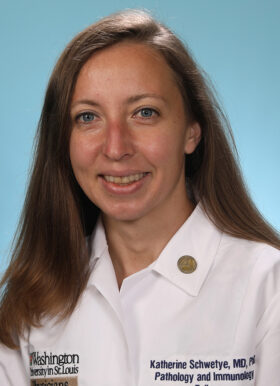
Katherine Schwetye, MD, PhD
Associate Professor, Pathology & Immunology
Director, Neuropathology Fellowship
- Phone: 314-273-4873
- Email: schwetyk@wustl.edu
Division: Neuropathology
Office of Faculty Development Representative
Trainees
Contact information
Lana Torry
Senior Fellowship Program Coordinator
Phone: 314-273-5476
lanaktorry@wustl.edu
